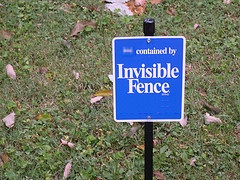 STANDING UP TO BULLYING ROLEPLAYS - Helping your child practice what to say and how to say it can be extremely valuable because you get good at what you practice. Roleplaying is a very specific exercise that can help a child be prepared for dealing with bullying. Here are some specific suggestions on HOW to support your child behind the scenes so that they are ready when the time comes.
STANDING UP TO BULLYING ROLEPLAYS - Helping your child practice what to say and how to say it can be extremely valuable because you get good at what you practice. Roleplaying is a very specific exercise that can help a child be prepared for dealing with bullying. Here are some specific suggestions on HOW to support your child behind the scenes so that they are ready when the time comes.
Steps for roleplaying:
Ask your child to do this with you (even humor you).
Note: Work with your child's ability to absorb, practice and not feel overwhelmed. Consider taking these ideas in chunks one at a time.
- Set up a time that you can have some fun with the roleplaying. Learning works better when there is less stress. So starting off easy, even with an occasional lightheartedness can help empower a child. As you get into the roleplaying send the message that this is serious and important.
- Practice the specific words to say (see below). Focus on HOW the words come out - using a calm, assertive, non-defensive tone; strong, tall body language; and good eye-contact! Also consider: when are good times to respond (with a sometimes friend - having a conversation when it is not happening can be extremely powerful); who your child should talk to - if there's more than one person, addressing a less mean child, the 'sometimes friend', or the 'supposed-to-be' friend and calling them on this, is more likely to have success.
- When roleplaying see if your child can be coached on the points in #2. If they are really not getting it, try modeling it yourself. But play both roles as opposed to having your child practice the bullying role. Ask specifically what is being said or done. Your role is to start easy where their comebacks work to get you (the bully) to stop. But since that is not often the case in real life, helping them have back up comebacks (3-4 at least) are important. Also tell your child that you are now going to try to push their buttons more. In other words, increase your meanness one notch at a time, while letting him/her know you are trying to make it harder. If they lose their cool, empathize with the fact that you were really pushing them. You need to send the message that they are learning so that they stay at it long enough to prepare themselves.
- Besides practicing comebacks, you must help your child know when to call in the reserves. It can help to have a 'what if...' discussion to help them see when the situation has gone beyond the child being expected to handle it. Like with the comebacks, make sure they have more than one plan for getting help. (Often people don't hear the first time so they may have to say it again or talk with someone else. And of course, you might be a bit hard of hearing too - so stay with it.)
Here are the words:
Start by kindly, yet firmly, letting the other person know that they 'crossed the line'. 'Excuse me, I was sitting there.', 'I was next.', 'Not funny.', 'Alright, already.', 'Please stop doing that.', 'Stop it.' (Watch your anger - practice calm responding and making good eye contact.)
If the bullying stops - wonderful! If it continues, here are two quick ways and one more intentional way of responding:
1. Agree:
Scenario 1:
Bait: 'How could you miss that shot!?' (attitude - annoyance - shame)
Response: 'Yeah - that wasn't great.' (Admitting your mistakes is an important part of life - just don't take on the shame part. You might also want to point out that his classmate has appointed himself your child's judge)
Scenario 2:
Bait: 'Hey Shorty.'
Response: 'Yes...I'm short (I wear glasses, I like dinosaurs, I do things differently, I'm quirky, I'm a big kid, I don't like soccer etc).' You may want to add: 'And your point?' (Then if they say something like 'That's stupid' - the response is something like: 'Hmm.", 'Whatever you say.', 'You're entitled to your opinion.', even just shrugging your shoulders or disagree - see below.)
2. Disagree/Stand up for yourself:
Scenario 1:
Bait: 'You're a jerk.' or 'You can't play.',
Response: 'I disagree.' , 'I see it differently.' or 'I have the right to be here.'(Not defensively - just matter-of-factly),
My kids' suggestion: 'You're not the boss of me.'
Scenario 2:
Bait: 'We don't want you here.'
Response: 'Why not?' (Not defensively - just curious). They may have a good reason like: You cheat. Then either agree and change or disagree (see above). If there is some friendship bond you could try humor: 'What's up with you?', 'Having a bad day are we?' But if it is just power-tripping then stand up for yourself: 'I'm part of this group too.', or 'I didn't know you made all the rules.'. You may also want to consider saying to yourself: 'I'm better than this.' (Because you are!) Then even though it can hurt when 'friends' treat you this way - leave the scene for now - and consider moving on to better friendship possibilities.
Scenario 3:
Physical Attack: pushing, hitting, kicking, etc. or threatening to do harm.
Response: Judge the situation.
Start with questioning the action. Sometimes, Especially if the attack was not severe, or possibly a joke gone too far, you can tone down the situation with a strong, curious (not too angry) statement - 'Dude - what's up?', 'What the heck?', or 'Ok - You're tougher than I am.' Not in a mocking way - just giving them what they need to prove at the moment. (And hopefully what you don't need to prove.) This can often change the direction.
If the attacker is angry but not escalating - if possible, hold your ground, defend yourself by holding back their arms or legs, look the person in the eye and calmly tell them to stop it. Then either walk away, or possibly even try to de-escalate the other person's anger. (See above) (Later - especially if they are a friend - you may want to tell them to stop pushing you around, etc.)
If you are in real danger - if they are physically stronger or in such a worked-up state that they can not be reasoned with, or if there is more than one attacker - the best move is to get away - being assertive in your movements as you move to safety or if that is not possible defend yourself as best you can, while calling for help by loudly calling the person out so others can hear and help - 'WHAT THE HECK', 'STOP ALREADY!'
Note: Be careful that you are not using their anger as a way to escalate things further for your own reasons. Sometimes, when someone gives us an opening, we blame our worse behavior on them. And there is a pride and power factor in not backing down. Be honest about how these concepts are playing into your reactions. Once you get away, this event should be reported to someone you trust.
It would be great if - as an assignment - your child came up with some other responses to real situations and practiced them. Remember these 'techniques' only work if your child remembers that he is doing his best, he is fine admitting a mistake or two, he is also strong enough to challenge someone when they have unreasonable expectations, and thinks enough of himself to find friends who like him.
3. Intentional Response:
With a sometimes-friend, or a child who has better boundaries, and at a time it is not happening - talk to the person and tell them how you feel (reasonably, assertively, with strength - not whiny, for pity or for guilt-tripping). You may even want to write them a note. Be specific about the behavior, and what you want them to do instead. 'I really wish you would stop the whole calling me short and patting me on the head thing (making fun of my nose, etc.), it's getting old. Any chance you can let that go?' Also - depending on the person - be willing to hear how your behavior might be making it harder. And be open to having a little sense of humor (though the 'I'm just joking' is sometimes used as an excuse for baiting and bullying) - just check your sensitivity.
Want more support? Contact me if you have any questions. I am also available to work with your child privately or in a group. Consider organizing a Don't Take The Bait Workshop in your child's school or contact me for other ideas.
Check out these articles and resources:
* For an excellent intervention on working with youth who bully go to:
 We come into contact with prickly people all the time. It might be a scowl, a frosty attitude or a touchy disposition. It might be the choice of words as in 'What do you want?!'
We come into contact with prickly people all the time. It might be a scowl, a frosty attitude or a touchy disposition. It might be the choice of words as in 'What do you want?!'






